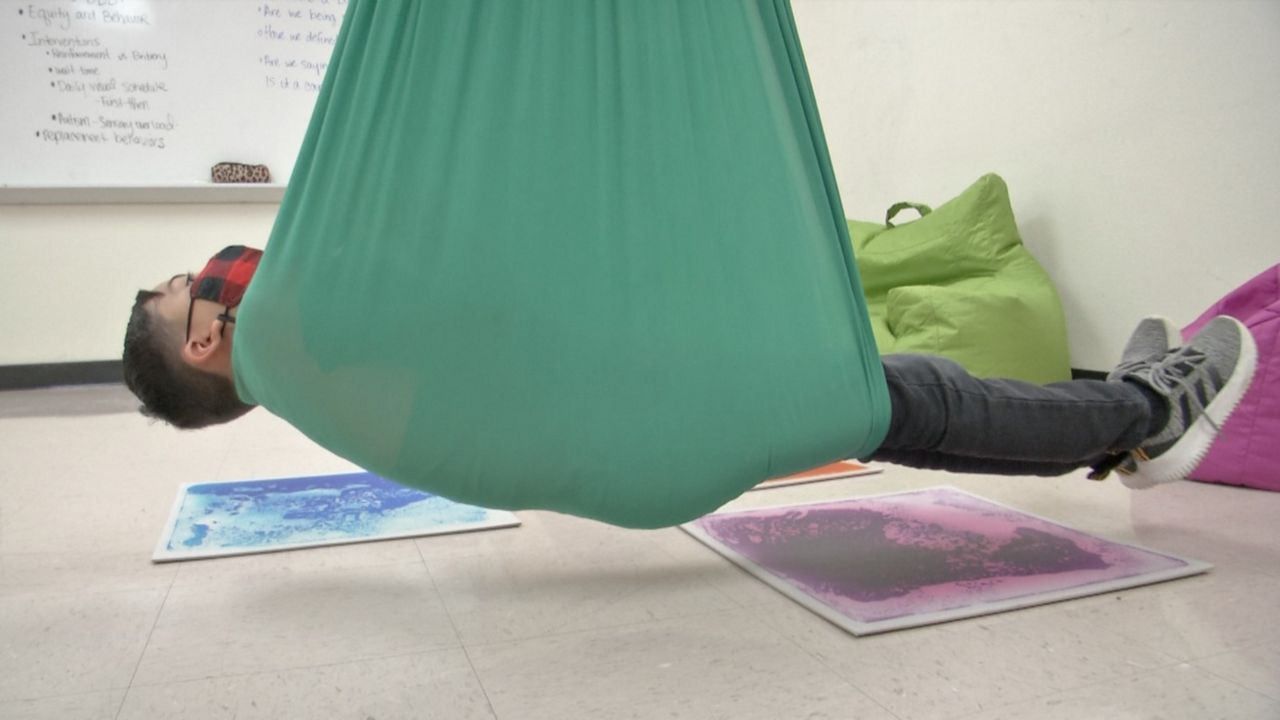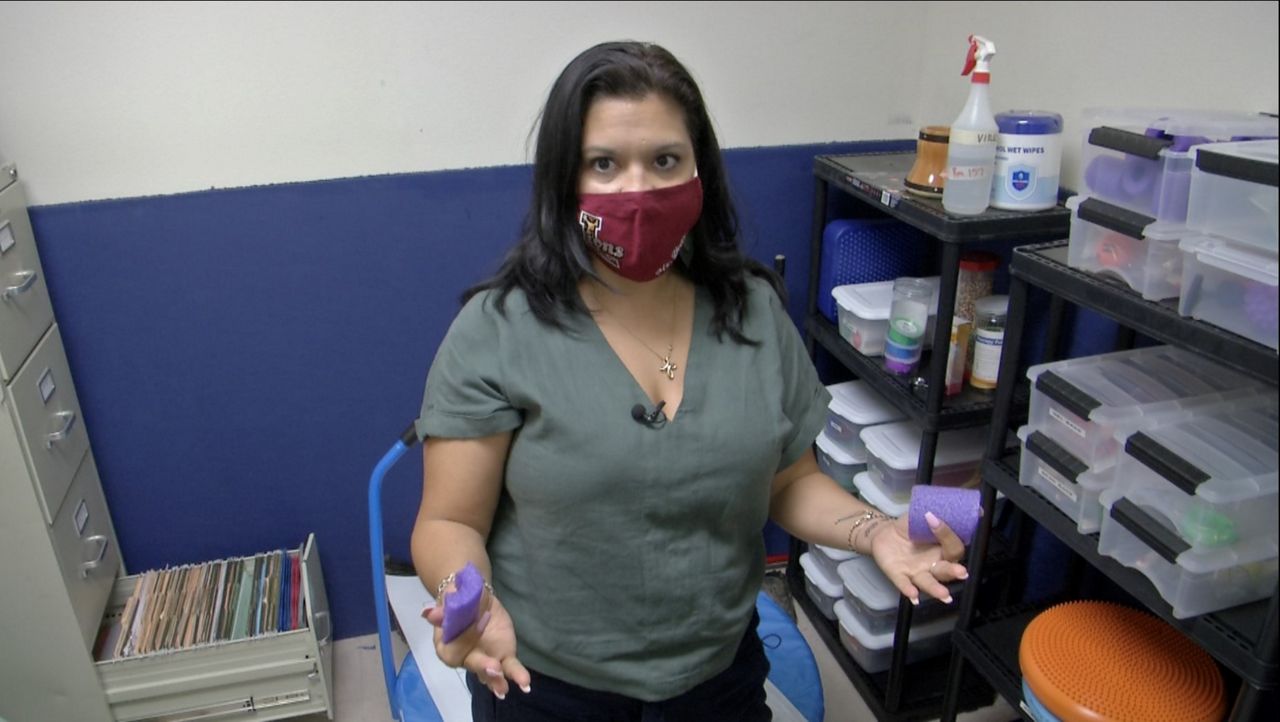LOCKHART, Texas — As children continue heading back into the classroom, schools are preparing for more students to return with pandemic-induced social and emotional issues. Students in one Lockhart elementary school are now able to use a new sensory room, to help students sensitive to certain stimuli better regulate their emotional responses, helping improve outcomes in class. And it’s not just for kids with special needs, the school is offering it to all students and even teachers.
Jadyn Soliz, a third-grader at Bluebonnet Elementary, admits that school can be frustrating for him, at times causing him to get angry or act out. Sometimes Jadyn requires extra support on the tough days. And while resources were already being provided to him, this year he’s able to utilize the “Lions Den,” a new behavior and sensory room at his school.
“When you’re like frustrated, or if you’re nervous you can like spin around like this and like put your head back like this,” said Jadyn, hopping into a green fabric sensory swing hanging from the ceiling of the room.
Jadyn said the swing is comfortable and helps him relax, collect his thoughts, and better concentrate on the issue at hand. The third-grader also likes climbing into the room’s wooden calming box, giving him a small enclosed space to be by himself and breathe.

“Like something’s bad happening in your head, you can just be in here and think about stuff,” said Jadyn.
“This area is very important to me, and it’s because this is where we do a lot of teaching of social-emotional regulation,” said Rebekah Bolls, pointing to a desk in the corner of the room that has different posters on the wall to help children better understand what they’re feeling and how to better react.
Bolls, redirection special education teacher at Bluebonnet, is the one who applied for the grant funding to make the room a reality.
The concept of the room is somewhat simple — provide students with a low-stress, fun environment to help train their brains to overcome sensitivity to certain issues, helping react with logic instead of emotion.
"So one of the things we love to use are pool noodles,” said Bolls.
Bolls said students can throw the pool noodles on the ground and can tear the foam. It’s a replacement habit, allowing kids to take out anger or stress on something that won’t get them in trouble, unlike throwing books or ripping up schoolwork.
“Here's something you can do instead of what you're doing,” explained Bolls. “You can't just tell a child to stop doing this. You have to teach them a skill to do instead."

Typically, in order for students to be able to use resources like a sensory room, they would already have to be on an independent education plan or IEP. Bolls said the testing and documentation to get a child on an IEP can take months, all while students are still clearly in need of assistance. It’s why Bolls wanted to make the sensory room at Bluebonnet open to all students, regardless of their special education status.
"This room does not take the place of an IEP, this room does not take the place of providing students with services, it just helps them while they’re getting through that process,” said Bolls.
Stress in the classroom isn’t just a kid thing. Juggling dozens of students can be trying on teachers too, teachers like third-grade teacher Koko Spalding. And so for the school that’s embracing social and emotional learning for their students, the school has also created a separate sensory space for teachers to take a breather as well.
“As adults sometimes I feel like we just have to keep going and keep pushing through, especially not show it to the kids,” said Spalding.
“Because that’s on our minds, it’s really helpful to have a room that tells you like, ‘Hey, hold on a minute, have you checked in with yourself? Because that will effect your teaching.’”
But the goal is to have the social and emotional awareness extend beyond the confines of the sensory room. Bolls said the school was recently approved for a grant to place sensory kits inside each and every classroom at Bluebonnet. And she says plans are in the works to build a sensory garden for students and staff as well.
